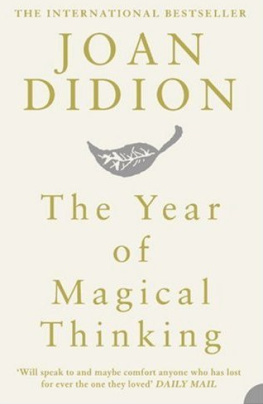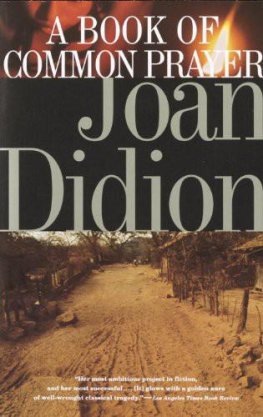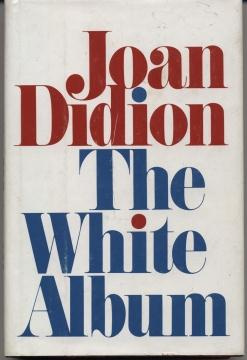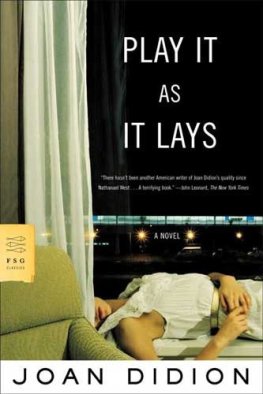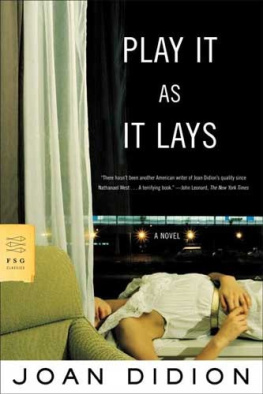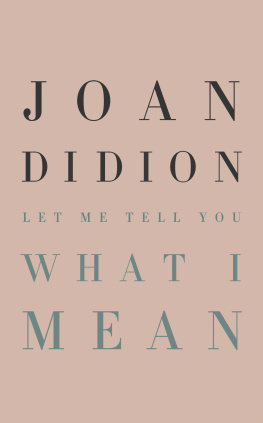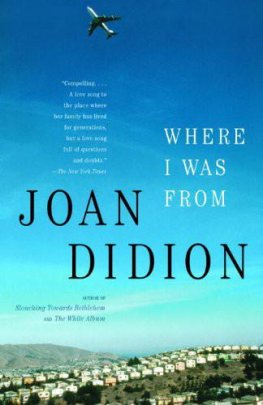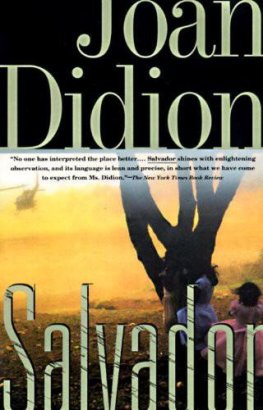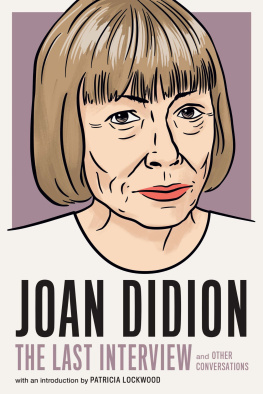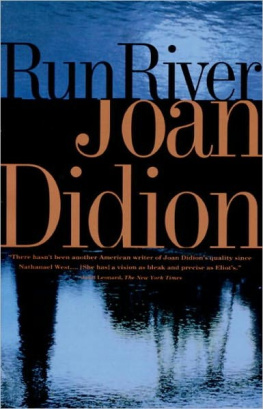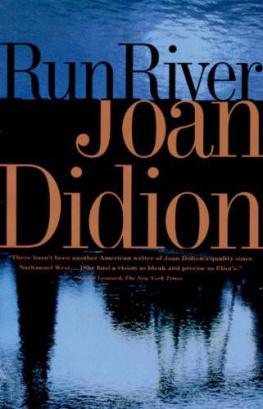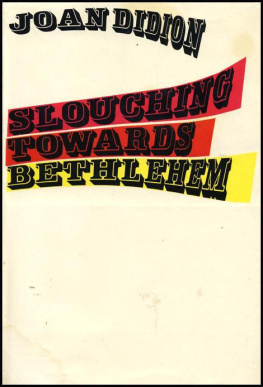Joan Didion - The Year of Magical Thinking
Here you can read online Joan Didion - The Year of Magical Thinking full text of the book (entire story) in english for free. Download pdf and epub, get meaning, cover and reviews about this ebook. year: 2007, publisher: Vintage, genre: Detective and thriller. Description of the work, (preface) as well as reviews are available. Best literature library LitArk.com created for fans of good reading and offers a wide selection of genres:
Romance novel
Science fiction
Adventure
Detective
Science
History
Home and family
Prose
Art
Politics
Computer
Non-fiction
Religion
Business
Children
Humor
Choose a favorite category and find really read worthwhile books. Enjoy immersion in the world of imagination, feel the emotions of the characters or learn something new for yourself, make an fascinating discovery.
- Book:The Year of Magical Thinking
- Author:
- Publisher:Vintage
- Genre:
- Year:2007
- Rating:4 / 5
- Favourites:Add to favourites
- Your mark:
- 80
- 1
- 2
- 3
- 4
- 5
The Year of Magical Thinking: summary, description and annotation
We offer to read an annotation, description, summary or preface (depends on what the author of the book "The Year of Magical Thinking" wrote himself). If you haven't found the necessary information about the book — write in the comments, we will try to find it.
The Year of Magical Thinking — read online for free the complete book (whole text) full work
Below is the text of the book, divided by pages. System saving the place of the last page read, allows you to conveniently read the book "The Year of Magical Thinking" online for free, without having to search again every time where you left off. Put a bookmark, and you can go to the page where you finished reading at any time.
Font size:
Interval:
Bookmark:

Contents
This book is for John and for Quintana
Life changes fast. Life changes in the instant. You sit down to dinner and life as you know it ends. The question of self-pity.T hose were the first words I wrote after it happened. The computer dating on the Microsoft Word file (Notes on change.doc) reads May 20, 2004, 11:11 p.m., but that would have been a case of my opening the file and reflexively pressing save when I closed it. I had made no changes to that file in May. I had made no changes to that file since I wrote the words, in January 2004, a day or two or three after the fact.
For a long time I wrote nothing else.
Life changes in the instant.
The ordinary instant.
At some point, in the interest of remembering what seemed most striking about what had happened, I considered adding those words, the ordinary instant. I saw immediately that there would be no need to add the word ordinary, because there would be no forgetting it: the word never left my mind. It was in fact the ordinary nature of everything preceding the event that prevented me from truly believing it had happened, absorbing it, incorporating it, getting past it. I recognize now that there was nothing unusual in this: confronted with sudden disaster we all focus on how unremarkable the circumstances were in which the unthinkable occurred, the clear blue sky from which the plane fell, the routine errand that ended on the shoulder with the car in flames, the swings where the children were playing as usual when the rattlesnake struck from the ivy. He was on his way home from workhappy, successful, healthyand then, gone, I read in the account of a psychiatric nurse whose husband was killed in a highway accident. In 1966 I happened to interview many people who had been living in Honolulu on the morning of December 7, 1941; without exception, these people began their accounts of Pearl Harbor by telling me what an ordinary Sunday morning it had been. It was just an ordinary beautiful September day, people still say when asked to describe the morning in New York when American Airlines 11 and United Airlines 175 got flown into the World Trade towers. Even the report of the 9/11 Commission opened on this insistently premonitory and yet still dumbstruck narrative note: Tuesday, September 11, 2001, dawned temperate and nearly cloudless in the eastern United States.
And thengone. In the midst of life we are in death, Episcopalians say at the graveside. Later I realized that I must have repeated the details of what happened to everyone who came to the house in those first weeks, all those friends and relatives who brought food and made drinks and laid out plates on the dining room table for however many people were around at lunch or dinner time, all those who picked up the plates and froze the leftovers and ran the dishwasher and filled our (I could not yet think my ) otherwise empty house even after I had gone into the bedroom (our bedroom, the one in which there still lay on a sofa a faded terrycloth XL robe bought in the 1970s at Richard Carroll in Beverly Hills) and shut the door. Those moments when I was abruptly overtaken by exhaustion are what I remember most clearly about the first days and weeks. I have no memory of telling anyone the details, but I must have done so, because everyone seemed to know them. At one point I considered the possibility that they had picked up the details of the story from one another, but immediately rejected it: the story they had was in each instance too accurate to have been passed from hand to hand. It had come from me.
Another reason I knew that the story had come from me was that no version I heard included the details I could not yet face, for example the blood on the living room floor that stayed there until Jos came in the next morning and cleaned it up.
Jos. Who was part of our household. Who was supposed to be flying to Las Vegas later that day, December 31, but never went. Jos was crying that morning as he cleaned up the blood. When I first told him what had happened he had not understood. Clearly I was not the ideal teller of this story, something about my version had been at once too offhand and too elliptical, something in my tone had failed to convey the central fact in the situation (I would encounter the same failure later when I had to tell Quintana), but by the time Jos saw the blood he understood.
I had picked up the abandoned syringes and ECG electrodes before he came in that morning but I could not face the blood.
I n outline.
It is now, as I begin to write this, the afternoon of October 4, 2004.
Nine months and five days ago, at approximately nine oclock on the evening of December 30, 2003, my husband, John Gregory Dunne, appeared to (or did) experience, at the table where he and I had just sat down to dinner in the living room of our apartment in New York, a sudden massive coronary event that caused his death. Our only child, Quintana, had been for the previous five nights unconscious in an intensive care unit at Beth Israel Medical Centers Singer Division, at that time a hospital on East End Avenue (it closed in August 2004) more commonly known as Beth Israel North or the old Doctors Hospital, where what had seemed a case of December flu sufficiently severe to take her to an emergency room on Christmas morning had exploded into pneumonia and septic shock. This is my attempt to make sense of the period that followed, weeks and then months that cut loose any fixed idea I had ever had about death, about illness, about probability and luck, about good fortune and bad, about marriage and children and memory, about grief, about the ways in which people do and do not deal with the fact that life ends, about the shallowness of sanity, about life itself. I have been a writer my entire life. As a writer, even as a child, long before what I wrote began to be published, I developed a sense that meaning itself was resident in the rhythms of words and sentences and paragraphs, a technique for withholding whatever it was I thought or believed behind an increasingly impenetrable polish. The way I write is who I am, or have become, yet this is a case in which I wish I had instead of words and their rhythms a cutting room, equipped with an Avid, a digital editing system on which I could touch a key and collapse the sequence of time, show you simultaneously all the frames of memory that come to me now, let you pick the takes, the marginally different expressions, the variant readings of the same lines. This is a case in which I need more than words to find the meaning. This is a case in which I need whatever it is I think or believe to be penetrable, if only for myself.
D ecember 30, 2003, a Tuesday.
We had seen Quintana in the sixth-floor ICU at Beth Israel North.
We had come home.
We had discussed whether to go out for dinner or eat in.
I said I would build a fire, we could eat in.
I built the fire, I started dinner, I asked John if he wanted a drink.
I got him a Scotch and gave it to him in the living room, where he was reading in the chair by the fire where he habitually sat.
The book he was reading was by David Fromkin, a bound galley of Europes Last Summer: Who Started the Great War in 1914?
I finished getting dinner, I set the table in the living room where, when we were home alone, we could eat within sight of the fire. I find myself stressing the fire because fires were important to us. I grew up in California, John and I lived there together for twenty-four years, in California we heated our houses by building fires. We built fires even on summer evenings, because the fog came in. Fires said we were home, we had drawn the circle, we were safe through the night. I lit the candles. John asked for a second drink before sitting down. I gave it to him. We sat down. My attention was on mixing the salad.
Font size:
Interval:
Bookmark:
Similar books «The Year of Magical Thinking»
Look at similar books to The Year of Magical Thinking. We have selected literature similar in name and meaning in the hope of providing readers with more options to find new, interesting, not yet read works.
Discussion, reviews of the book The Year of Magical Thinking and just readers' own opinions. Leave your comments, write what you think about the work, its meaning or the main characters. Specify what exactly you liked and what you didn't like, and why you think so.

